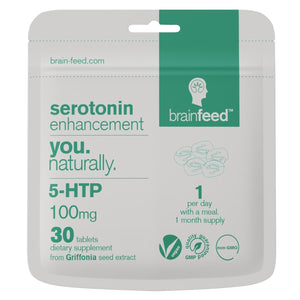How to deal with seasonal depression: 4 strategies to change your mood affected by weather
filter
As the seasons change and the leaves turn into a beautiful orange and red colour, many people find themselves experiencing a shift in their mood and energy levels. This phenomenon is commonly known as SAD - seasonal affective disorder, or more colloquially, seasonal depression. There are ways to beat the winter blues effectively and change the mood affected by weather. In this article, you’ll discover 4 strategies you need to consider so you can enjoy a brighter and more fulfilling life year-round.
Do I have the SADs?
SAD syndrome better known as seasonal depression typically occurs during the fall and winter months when daylight hours decrease[1]. What are the symptoms of SAD? It can lead to low energy, mood swings, and a general sense of sadness[2]. Some people also experience seasonal depression in summer months[3]. To effectively prepare for seasonal depression, it's important to understand the science behind SAD disorder and seasonal depression symptoms. So, when does seasonal depression start? One of the most well-known theories points to a lack of exposure to natural light[4]. During the fall and winter, decreased daylight hours disrupt your body rhythms known as circadian rhythms and can lead to imbalances in crucial brain chemicals such as the feel-good chemical serotonin and the sleep hormone melatonin[5]. These chemical imbalances are closely linked to SAD which is sometimes also called the winter depression. Decreased sunlight exposure can lead to increased levels of melatonin, causing seasonal affective disorder symptoms such as drowsiness in the winter[6]. On the other hand, exposure to natural light triggers the release of serotonin, a brain messenger associated with regulating emotions. Let’s take a look at how to deal with seasonal depression with 4 strategies you can implement in your life.
1 Healthy body = healthy mind
Seasonal depression can have a profound impact on your overall well-being. To prepare for the winter and mental health conditions that it may bring, focus on maintaining a healthy routine that includes regular exercise, a balanced diet, and adequate sleep[7]. A paper on healthy eating, physical activity and sleep emphasised the importance of these lifestyle factors in managing seasonal depression[7].
- Sleep plays a crucial role in managing seasonal depression. Establish a consistent sleep schedule, and aim for 7-9 hours of sleep per night. Adequate sleep is essential for regulating mood and cognitive function, and it can help reduce the severity of SAD symptoms[8].
- Exercise releases the feel-good brain chemical serotonin, which is a natural mood regulator, that can help counteract the feelings of low energy and sadness which often accompany seasonal depression[9,10].
- Additionally, maintaining a nutritious diet full of tryptophan-rich foods such as meat, tofu and chia seeds can provide essential nutrients that support your mental and emotional well-being[11]. Tryptophan is needed for your body to produce serotonin’s building block 5-htp. Alternatively, you can opt for a 5-htp supplement which is directly converted into your feel-good chemical serotonin that helps you balance your mood. brain feed developed a natural and efficient serotonin booster, considered the world’s smallest, 98% nutrient-dense tablet providing you with 100mg of 5-htp per tablet. Get 15% off your first purchase with the code ‘NEW15’.
2 Friends to the rescue
Social isolation is a common consequence of seasonal depression, as individuals may withdraw from social activities due to low energy and mood[12]. However, maintaining social connections is vital for managing this condition. Social support and engagement reduced the impact of SAD on individuals[13]. To prepare for the upcoming season, make an effort to stay socially engaged. Plan regular gatherings with friends and family, and participate in activities that you enjoy. Even though it may be tempting to hibernate during the colder months, engaging with others can provide emotional support and help combat the sense of loneliness that often accompanies seasonal depression. In addition to in-person interactions, consider using technology to connect with loved ones virtually if face-to-face meetings are not possible.
3 More light, more happiness
One of the most effective strategies for managing seasonal depression is spending as much time outside, getting natural sunlight or opting for light therapy, also known as phototherapy. Light therapy for depression involves exposure to a special type of light that mimics natural sunlight and can help regulate your circadian rhythms and hormone levels. This treatment is supported by a considerable body of research, and it's a practical and accessible way to prepare for and mitigate the symptoms of seasonal depression. A meta-analysis analysed 19 studies and found that light therapy is one of the most effective seasonal affective disorder treatments, however, studies using a bigger sample size of participants are needed in the future[14]. To prepare for seasonal depression, invest in a high-quality light therapy lamp and incorporate it into your daily routine during the fall and winter months. A typical light therapy session lasts around 20-30 minutes and can be done while reading, working, or simply relaxing.
4 Seek help to get it
While the strategies mentioned above can be effective in preparing for and managing seasonal depression, it's essential to recognize that SAD is a legitimate mental health condition that may require professional seasonal depression treatment[15]. If your symptoms are severe, persistent, or significantly impair your daily life, it's crucial to seek help from a mental health professional, such as a therapist or psychiatrist[16,17]. A study on 177 adults with SAD concluded that CBT (cognitive behavioural therapy) is effective for SAD during an acute episode, and may be considered as a treatment option[18]. Psychotherapy and psychiatry treatments can help you learn coping strategies, manage your symptoms, and ultimately lead a more fulfilling life.
You can take control of your mental and emotional well-being and enjoy the changing seasons with greater resilience and positivity. Embrace the upcoming seasons with confidence, knowing that you have the tools to thrive throughout the year.
References
[1] Howland, R. H. (2009). An Overview of Seasonal Affective Disorder and its Treatment Options. The Physician and Sportsmedicine, 37(4), 104–115.
[2] Magnusson, A., & Partonen, T. (2005). The Diagnosis, Symptomatology, and Epidemiology of Seasonal Affective Disorder. CNS Spectrums, 10(8), 625–634.
[3] Kasof, J. (2009). Cultural variation in seasonal depression: Cross-national differences in winter versus summer patterns of seasonal affective disorder. Journal of Affective Disorders, 115(1–2), 79–86.
[4] Zauderer, C., & Ganzer, C. A. (2015). Seasonal affective disorder: an overview: Cheryl Zauderer and C Anne Ganzer outline the diagnosis, causes and treatment options for people who experience the winter blues. Mental Health Practice, 18(9), 21–24.
[5] Levitan, R. D. (2007). The chronobiology and neurobiology of winter seasonal affective disorder. Dialogues in Clinical Neuroscience, 9(3), 315–324.
[6] Alston, M., Cain, S. W., & Rajaratnam, S. M. W. (2018). Advances of Melatonin-Based Therapies in the Treatment of Disturbed Sleep and Mood. In H.-P. Landolt & D.-J. Dijk (Eds.), Sleep-Wake Neurobiology and Pharmacology (Vol. 253, pp. 305–319). Springer International Publishing.
[7] Briguglio, M., Antonino Vitale, J. A., Galentino, R., Banfi, G., Zanaboni Dina, C., Bona, A., Panzica, G., Porta, M., Dell’Osso, B., & Glick, I. D. (2020) Healthy Eating, Physical Activity, and Sleep Hygiene (HEPAS) as the Winning Triad for Sustaining Physical and Mental Health in Patients at Risk for or with Neuropsychiatric Disorders: Considerations for Clinical Practice. Neuropsychiatric Disease and Treatment, 16, 55–70.
[8] Galima, S. V., Vogel, S. R., & Kowalski, A. W. (2020). Seasonal Affective Disorder: Common Questions and Answers. American Family Physician, 102(11), 668–672.
[9] Peiser, B. (2009). Seasonal affective disorder and exercise treatment: a review. Biological Rhythm Research, 40(1), 85–97.
[10] Wipfli, B., Landers, D., Nagoshi, C., & Ringenbach, S. (2011). An examination of serotonin and psychological variables in the relationship between exercise and mental health: Serotonin, exercise, and mental health. Scandinavian Journal of Medicine & Science in Sports, 21(3), 474–481.
[11] Lindseth, G., Helland, B., & Caspers, J. (2015). The Effects of Dietary Tryptophan on Affective Disorders. Archives of Psychiatric Nursing, 29(2), 102–107.
[12] Pendse, B. P. G., Öjehagen, A. ., Engström, G., & Träskman-Bendz, L. (2003). Social characteristics of seasonal affective disorder patients: comparison with suicide attempters with non-seasonal major depression and other mood disorder patients. European Psychiatry, 18(1), 36–39.
[13] McCarthy, E., Tarrier, N., & Gregg, L. (2002). The nature and timing of seasonal affective symptoms and the influence of self-esteem and social support: a longitudinal prospective study. Psychological Medicine, 32(8), 1425–1434.
[14] Pjrek, E., Friedrich, M.-E., Cambioli, L., Dold, M., Jäger, F., Komorowski, A., Lanzenberger, R., Kasper, S., & Winkler, D. (2020). The Efficacy of Light Therapy in the Treatment of Seasonal Affective Disorder: A Meta-Analysis of Randomized Controlled Trials. Psychotherapy and Psychosomatics, 89(1), 17–24.
[15] Melrose, S. (2015). Seasonal Affective Disorder: An Overview of Assessment and Treatment Approaches. Depression Research and Treatment, 2015, 1–6.
[16] Forneris, C. A., Nussbaumer-Streit, B., Morgan, L. C., Greenblatt, A., Van Noord, M. G., Gaynes, B. N., Wipplinger, J., Lux, L. J., Winkler, D., & Gartlehner, G. (2019). Psychological therapies for preventing seasonal affective disorder. Cochrane Database of Systematic Reviews.
[17] Kurlansik, S. L., & Ibay, A. D. (2012). Seasonal Affective Disorder. American Family Physician, 86(11), 1037–1041.
[18] Rohan, K. J., Mahon, J. N., Evans, M., Ho, S.-Y., Meyerhoff, J., Postolache, T. T., & Vacek, P. M. (2015). Randomized Trial of Cognitive-Behavioral Therapy Versus Light Therapy for Seasonal Affective Disorder: Acute Outcomes. American Journal of Psychiatry, 172(9), 862–869.


 alertness
alertness
 cognition
cognition
 sleep
sleep
 wellbeing
wellbeing








Leave a comment
Open tab